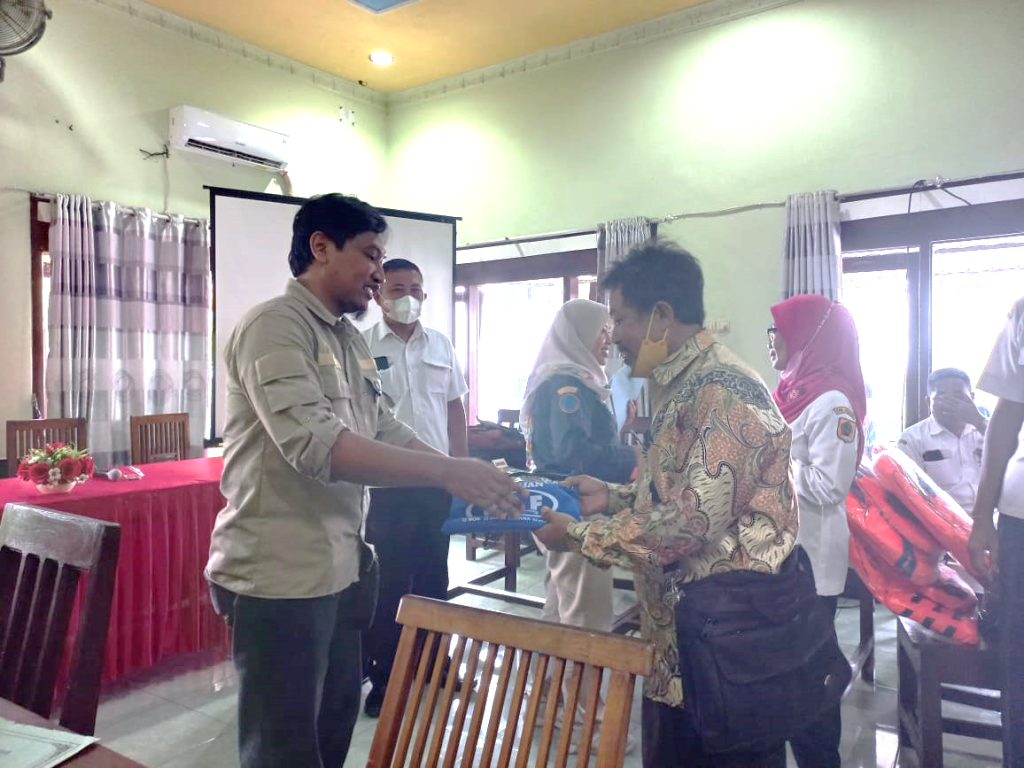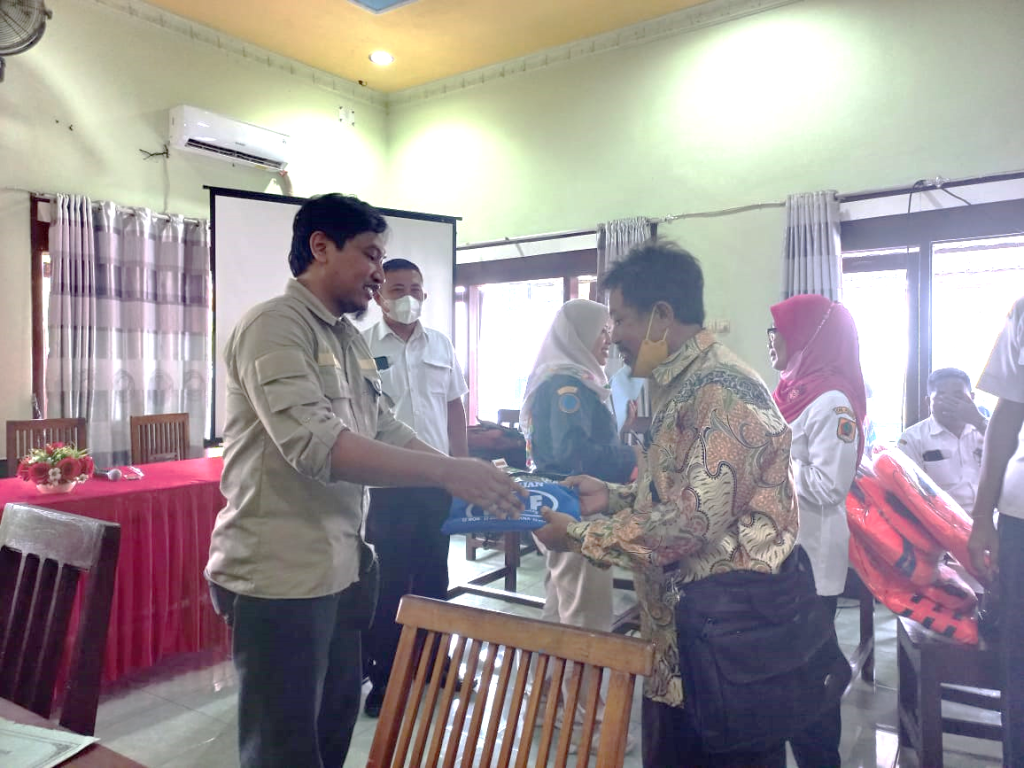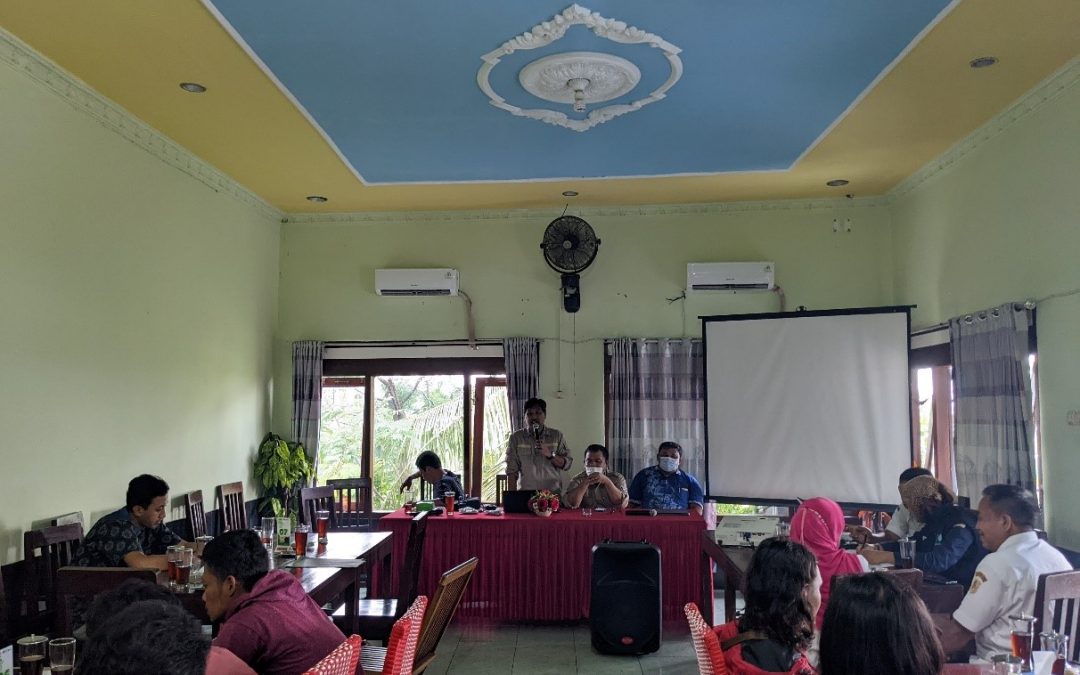Wonogiri (25/5), Gajah Mungkur Reservoir located in Wonogiri Regency with an area of around ±8,800 ha is one of the land public water areas included in WPP NRI PD 434. The location of the reservoir covers 7 (seven) districts, namely Wonogiri, Ngadirojo, Nguntoronadi, Baturetno, Giriwoyo, Eromoko, and Wuryantoro. This public water area is also used by local communities as a fishing site. Apart from being fish farmers, the local community also has a livelihood as fishing fishermen with fish targets are various types of freshwater fish such as tilapia and catfish. The types of fishing gear that dominate at this location are the types of gill nets, line fishing, and traps.
On May 25, 2022, the Community Service Team of the Department of Capture Fisheries FPIK UNDIP chaired by Kukuh Eko Prihantoko, S.Pi., M.Si. carry out a Community Service Program with local Fishing Community Groups around the Gajah Mungkur Reservoir which carries out fishing business. This time, the Service Team of the Department of Capture Fisheries FPIK UNDIP took the topic of Occupational Safety of Fishermen in Mainland Public Waters as the concept of its service program. As we all know, a job as a fisherman is one of the jobs that contain the risk of danger, considering that the work environment is an open work environment. The limited work area on the boat, and being above the waters have an impact on the increasing potential dangers in the work as a fisherman. To minimize the occurrence of the risk of danger and improve work safety, knowledge of work safety efforts and supporting equipment is needed.
The Community Service Team of the Department of Capture Fisheries UNDIP consists of Dr. Ir. Herry Boesono, M.Pi., Dr. Indradi Setiyanto, A., M.Pi. and Trisnani Dwi Hapsari, S.Pi., M.Si. in collaboration with local fishing community groups around the Gajah Mungkur Reservoir held knowledge transfer education activities in the form of counseling on the importance of occupational safety and occupational safety devices to support worker safety when working in public waters inland.
It was conveyed by the Service Team of the Department of Capture Fisheries FPIK UNDIP, that two factors that can be used to minimize the occurrence of work accidents in the waters are knowledge about the conditions of the working environment and the availability of safety equipment. Often the occurrence of fatal work accidents in the open-water environment is caused by limited knowledge of the aquatic environment and the unavailability of devices that can be used for self-preservation. For example, knowledge of the working environment conditions that are important in working in an open-water environment is weather conditions and aquatic hydro-oceanography. Signs of severe weather in a water area need to be known and detected so that preventive measures can be taken to prevent the occurrence of dangerous risks. The condition of the depth of the waters and the movement of currents in the waters need to be understood so that fatal work accidents do not occur. High vigilance is required when working in a deep open-water environment with strong current conditions. In addition, the availability of self-rescue equipment is also still necessary. For example, self-preservation equipment when working in open water is a life jacket, safety wear pack raincoat, and life buoy. This equipment will be indispensable in the event of dangerous conditions in the waters and will be able to be a lifesaver. In addition to the transfer of knowledge about work safety efforts in the waters, the Service Team also provides several work safety equipment that can be used by local fishermen to minimize the occurrence of fatal work accidents.
The Community Service Team hopes that the community service program that has been implemented, can have an impact on the low number of fatal work accidents, especially in open water environments. The local Fishermen’s Community Group also hopes that the Service Program funded by the Faculty of Fisheries and Marine Sciences, Diponegoro University can be implemented again continuously. It was also conveyed by the fishing community group that the latest knowledge and insights that develop in higher education are needed by the community to support various work activities carried out.





Recent Comments